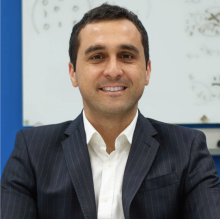Towards Compositional Secure Autonomy: From Perception to Control
Towards Compositional Secure Autonomy: From Perception to Control
Abstract
Autonomous systems, such as self-driving cars, drones, and mobile robots, are rapidly becoming ubiquitous in our society. These systems are composed of multiple individual software components for perception, prediction, planning, and control. While these systems are now blurring the lines between traditional computing systems and human intelligence and revolutionizing markets, a significant gap exists in developing theory and practice that indicates how the behavior of each component can be unified to reason about their system-wide security. This gap is exacerbated by the increasing use of learning-enabled components with inputs from diverse sensors and actuators that operate in open and uncontrolled physical environments.
In this talk, I present the challenges in compositional secure autonomy and principles from our recent efforts on vulnerability discovery and security enforcement to address these challenges. I illustrate these challenges and principles with examples and sample results by focusing on robotic vehicles and autonomous driving. I conclude with a discussion of the open problems and opportunities, and outline areas for defensive research in the future.
Speaker Bio
Z. Berkay Celik is an Assistant Professor of Computer Science at Purdue University, where he is the co-director of the Purdue Security (PurSec) laboratory and a member of the Center for Education and Research in Information Assurance and Security (CERIAS). His research investigates the design and evaluation of security for software and systems, specifically on emerging computing platforms and the complex physical environments in which they operate. Through systems design, program analysis, and formal methods, his research seeks to improve security and privacy guarantees in commodity computer systems. His research approach is best illustrated by his extensive work on the Internet of Things (IoT) and Cyber-Physical Systems (CPS), including robotic vehicles, automobiles, and autonomous vehicles. He has received the National Science Foundation CAREER Award in 2022 and Google's ASPIRE Research award in 2021-2023. More information about his research group and publication record is available at https://beerkay.github.io.


